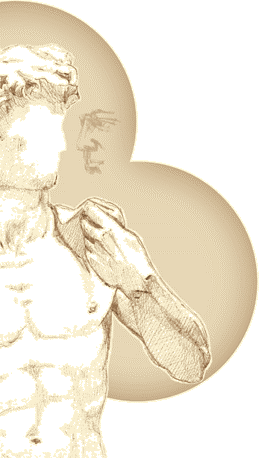 The book I translated is finally being published. The publishing event is on September 7th (Monday) at 2.00pm downtown Helsinki at Cafe Aalto, the cafeteria designed by Alvar Aalto.
The book I translated is finally being published. The publishing event is on September 7th (Monday) at 2.00pm downtown Helsinki at Cafe Aalto, the cafeteria designed by Alvar Aalto.For those of you who understand Finnish, below is the relevant information that I copy-pasted from the invite.
Among the panelists are Mr. Alexandre Havard himself (flying in from Moscow), the Finnish MEPs Mr. Timo Soini and Mrs. Sari Essayah (flying in from Brussels) and representing Providentia is the economist Mr. Oskari Juurikkala.
-- -- -- -- -- -- -- -- -- -- -- -- -- -- -- --
KIRJANJULKISTAMISTILAISUUS
Alexandre Havardin Virtuous Leadership (New York: Scepter Publishers 2007) julkaistaan 9. käännöksenä suomeksi Hyvejohtajuus viikolla 37. Sitä ennen pidetään kirjan tiimoilta paneelikeskustelu.
Julkaisia: Providentia
Painotalo: Otava
Design ja taitto: Nordenswan & Siirilä
Suomentaja: Jason Lepojärvi
Myyntiin: viikolla 37
Tervetuloa aistillisen eleganttiin, Alvar Aallon sisustamaan Cafe Aaltoon kirjanjulkistamistilaisuuteen maanantaina 7. syyskuuta klo 14--15.30.
PANEELIKESKUSTELU
Mukana: johtajuuskirjoittaja Alexandre Havard, europarlamentaarikot Timo Soini (PS) ja Sari Essayah (KD) sekä taloustieteilijä Oskari Juurikkala (Providentia). Tilaisuuden juontaa toimittaja Jan Ahonen.
Teemana on johtajuus, hyveet ja niiden yhteispeli nykymaailmassa -- ts. "hyvejohtajuus". Aihe on äärimmäisen ajankohtainen myös Suomessa (vaalirahasotku, talouspetokset).
Yleisöllä ja lehdistöllä mahdollisuus esittää kysymyksiä. Tilaisuuden kieli on suomi.
ALEXANDRE HAVARD
 Alexandre Havard (s. 1962, Pariisi) on johtajuuskouluttaja ja Havard Virtuous Leadership Instituten (HVLI) perustaja. Hänen kehittämänsä hyveisiin perustuva hyvejohtajuusmalli soveltaa klassista näkemystä ihmispersoonasta nykyajan organisaatioiden tarpeisiin.
Alexandre Havard (s. 1962, Pariisi) on johtajuuskouluttaja ja Havard Virtuous Leadership Instituten (HVLI) perustaja. Hänen kehittämänsä hyveisiin perustuva hyvejohtajuusmalli soveltaa klassista näkemystä ihmispersoonasta nykyajan organisaatioiden tarpeisiin.Havard itse luennoi englanniksi, ranskaksi, espanjaksi, venäjäksi -- ja Suomessa asuneena jopa suomeksi.
KIRJASTA POIMITTUA
"Talousskandaaleja seuraa poikkeuksetta vaatimuksia valtiollisen sääntelyn vahvistamisesta, kaupan hallinnon reformista ja eettisten sääntöjen uudistamisesta. Näillä kaikilla on hyötynsä, mutta ne unohtavat jotain olennaista. Talouspetosten kyhäilijät ja muut lainrikkojat tietävät varsin hyvin, että se, mitä he tekevät, on väärin. Kyse on luonteenviasta." (JOHDANTO s. ix.)
TAKAKANNESTA
"Johtajuus on ensisijaisesti luonteen asia -- ei sen, mitä ihminen tietää tai osaa, vaan mitä hän on. Ihmisen luonnetta voidaan vahvistaa, sillä se on vapaan tahdon aluetta, toisin kuin temperamentti, joka on pitkälti jotakin synnynnäistä. Luonteen ytimessä ovat hyveet, toisin sanoen hyvät luonteenpiirteet, jotka näkyvät teoissa.
Hyvejohtajuus tarjoaa hyveissä kasvamisen metodologian jokaiselle. Johtajuus ei ole varattu vain jollekin eliitille, vaan se on monien kutsumus. Kirja sisältää esimerkkejä hyveiden ja johtajuuden yhteispelistä yhteiskunnan joka alalta: liike-elämästä, politiikasta, journalismista, koulutusalalta, uskonnosta, lääketieteestä ja myös vanhemmuudesta. Suomessakin asunut Havard mainitsee mm. saunan, Mannerheimin ja Helsingin Sinebrychoffin puiston."

KIRJASTA SANOTTUA
"Pidin kirjaa äärimmäisen kiehtovana, sillä se meni suoraan asian ytimeen: meidän tulee perustaa päätöksemme todellisuudelle, ja se taas vaatii todellisen käsityksen ihmispersoonasta."
--Francois Michelin, CEO emeritus, Group Michelin
LINKIT
Johtamisblogi hyvejohtajuus.fi.
Hyvejohtajuus Facebookissa.









